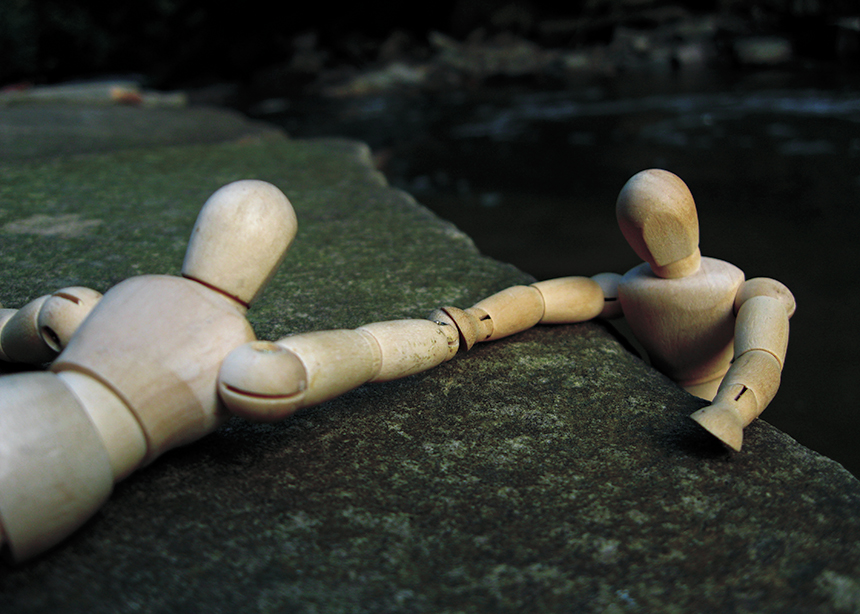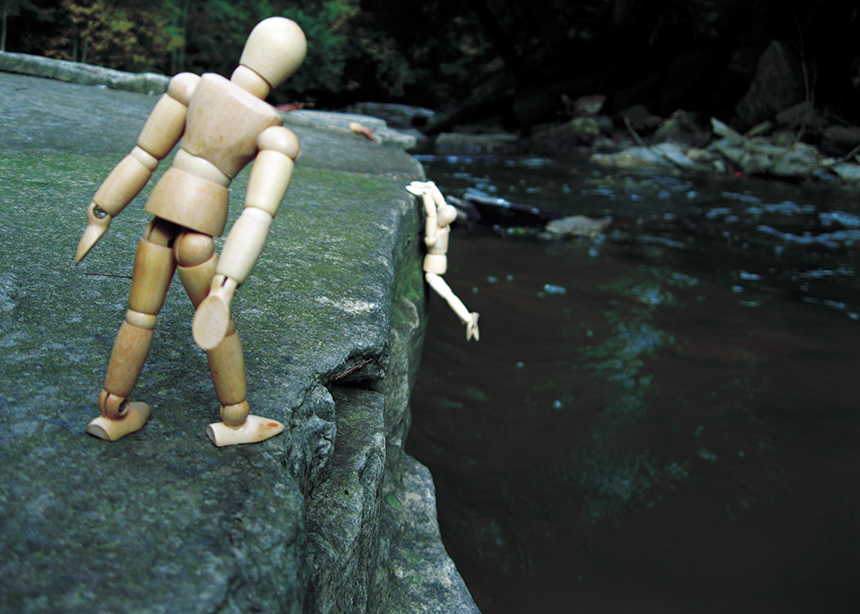Who wants to talk about sin? Not me, that’s for sure. Most people I know are pretty stressed out; they want good news, not something that makes them feel worse.
As I write this my autocorrect keeps changing the word “sin” to “sun.” My computer can’t even believe I want to talk about it.
In fact, I used “freedom” in the title, instead of “sin,” so as not to drive readers away. And I will talk about freedom, so keep reading.
Lent is traditionally a time to talk about sin, in order to encourage repentance. We are looking towards Jesus’ passion and death on the cross, which was the result of sin.
People typically give up chocolate, desserts or alcohol for Lent but it’s not usually because they think those things are sinful; it’s more about practicing self-discipline, which is a good thing to practice. But Lent can also be a time to confess our sins.
Sin that we have not confessed affects us. Is there something bad you’ve done that you’ve never told anyone about? For some it can lead to a nagging feeling that we are bad, and this can manifest in physical ways.

The ache of sin
Long ago our 7-year-old daughter was playing in my husband’s office while we were working just outside. We were surprised when two fire trucks and an ambulance came rolling up with sirens and lights. We explained there was no emergency. My daughter insisted she had not called 911. That night she went to bed early because she said she had a stomach ache.
I went and talked to her, and in the dark she confessed she had called 911, but had hung up immediately. “I didn’t know they would come if I didn’t talk to them,” she said. It was a mistake, but by covering it up she made it worse for herself.
Sin also happens when we fail to do something we should do. Years ago I saw that my neighbour’s young son had a terrible bruise on his leg. I asked him what happened and he said: “My dad kicked me because I wouldn’t get off the couch.” I thought of reporting this to Children’s Aid but I was intimidated by my neighbour who was a fan of martial arts and had a big dog. I rationalized that this boy’s mother should report it.
I had no idea at the time how that decision would fill me with years of regret—how for the rest of my life I would wonder what happened to that boy.
Our sins can haunt us. Talking about what we’ve done wrong and repenting can help. In my work as a pastor I’ve had many people confess things they’ve done long ago. By telling someone we are seeking release and freedom.
Together we can pray for God’s forgiveness, and we can talk about giving repentance feet. What does true repentance do? It usually means making things right and apologizing to the people you’ve hurt.
Sadly I have talked to people who had no remorse for obviously bad things they’d done. They had an excuse for everything, or they blamed others. Or they justified their actions, just like I did after not helping the neighbour boy. When you fail to confess, and sin gets heaped upon sin you can lose your moral compass, or at least bury it so deep it’s very hard to find.
Precise confession
In the past Mennonites have gone overboard on delineating sins. Churches divided over the sinfulness of different types of head coverings. When people committed sins, there was often more condemnation than grace.
I think we are overcompensating now; we rarely talk about sin. In a class I teach on worship, I see a tendency to talk about sin in broad, generic terms, like “forgive us our sins.” But sometimes we benefit from more particular prayers:
“For all who could have been generous this week, but hoarded their money….”
“For times we have looked down on someone because of the colour of their skin…..”
“For those here who have been violent in word or deed towards family members….”
“For things we are addicted to, that harm our lives and relationships….”
Confessional prayers can be overwhelming if we list too many things, but in the course of a year have your worship leaders specifically named abuse, racism, pride or greed? If they haven’t, is it because we think no one sitting in church struggles with those sins?
Confessing specific sins is difficult, but the alternative is to create the impression that we are all extremely good, blameless people sitting in the pews.
We are all loved and embraced by God, but we are not blameless. Confessing our sins comes when we invite Jesus to walk with us in our daily lives. With Jesus at our side, we will be more likely to see what we need to confess.

Communal grace
But even there, we need the church, we need the larger community to give course corrections on this journey with Jesus. We need to be called to confess. We need to examine together the systemic, multi-generational sins related to global economics and treatment of Indigenous peoples.
Confession is an exercise in community. Is there someone in the church with whom you’ve exchanged harsh words? Is there a family member you can’t tolerate? The healthiest communities are ones in which we can admit our mistakes and try to make things right. Taking time in Lent to start mending broken relationships, with a card, a conversation or a casserole is taking our repentance prayers and making them visible.
Martin Luther wrote the following about temptation: “You cannot prevent the birds from flying in the air over your head, but you can prevent them from building a nest in your hair.” I would apply that image to sin. It is a burden we carry, which we may not think about, but which sometimes is visible to others and impacts how we live in the world.
John the Baptist cried out, “ Repent, for the kingdom of heaven has come near.” It’s actually a good news message. We don’t have to live in misery with guilty consciences. Jesus offers us salvation from all that. Confession of sin and repentance is ultimately about freedom. It’s clearing our head, its shedding the weight of sin. Lent is a good time to ask, “Do we want to be truly free?” Jesus shows us the way.
Carol Penner teaches practical theology at Conrad Grebel University College in Waterloo. She is posting Lenten confessional prayers at leadinginworship.com.









Leave a Reply
You must be logged in to post a comment.